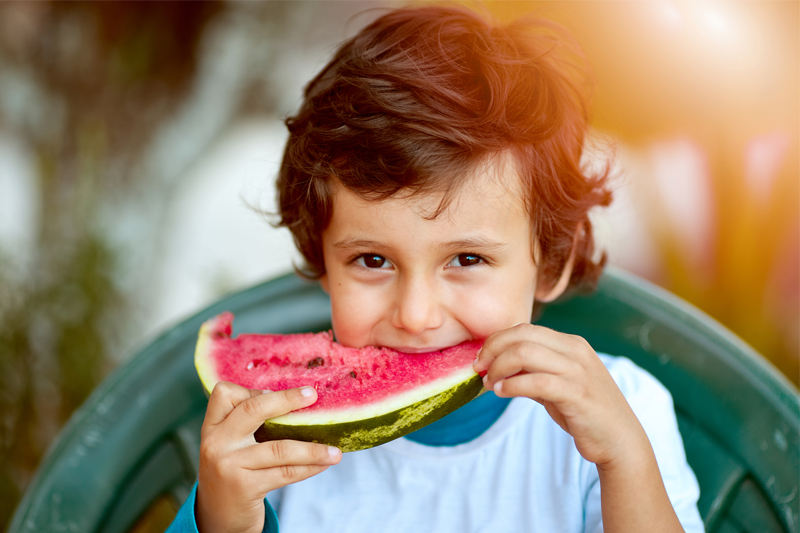Did you know that approximately 60% of our body is made up of water? Without proper hydration, our cells, organs and muscles (especially our heart), and tissues can't properly function. While getting your daily servings of water can oftentimes seem like a chore, it’s important to remember that you have to drink or eat your water even if you don’t feel thirsty. That’s right I said, eat your water! While "eating" your water is no substitute for drinking and by no means should be the only way you stay hydrated, it can help you to replenish your bodily fluids in a way that might be a bit more enjoyable. So don’t overlook the large variety of fruits and vegetables that have the ability to keep you hydrated year-round.
Watermelon
You can add watermelon to your diet by consuming it as a refreshing snack or side dish. It even works well in a salad!
- Water content: 92%
- Watermelons are great snacks because they're low in calorie density.
- This fruit is rich in powerful antioxidants including lycopene. Lycopene has been linked to benefits like increased heart health and even protection against sunburns and certain types of cancers.
Strawberries
It's easy to include strawberries in your diet by blending them into smoothies, incorporating them into salads, or adding them into your morning breakfast routine.
- Water content: 91%
- Strawberries nourish your body with fiber, disease-fighting antioxidants, vitamins, and minerals.
- They may reduce inflammation, which can help protect against some chronic illnesses such as heart disease and diabetes.
Cantaloupe
Cantaloupe is delicious on its own but can also be added into smoothies, enjoyed as a side dish, or even chopped up and sprinkled into yogurt or salsa.
- Water content: 90%
- Cantalopes are plentiful in vitamins A and C, providing up to 120% of your daily needs.
- This type of melon is thought to boost immune health by protecting against infection.
Peaches
It's simple to add peaches to your diet! Besides adding them to smoothies and salads, they also make a great addition to cottage cheese and yogurt. Try grilling them for an awesome dessert!
- Water content: 89%
- They're nutrient-dense with vitamins A, B, and C as well as fiber and potassium.
- Peaches eaten with the skin on may also help you absorb more disease-fighting antioxidants.
Cucumber
Commonly added to salads and sandwiches, they can also be included in cooked dishes like stir-fries and soups. Try including them in a summer salad made with tomatoes and green onions, or mixed them in with cottage cheese.
- Water content: 95%.
- Made up mostly of water, they provide a small amount of some nutrients such as vitamin K, potassium, and magnesium.
- Cucumbers are only 8 calories per half-cup serving, making them ideal to eat without adding a significant number of calories.
